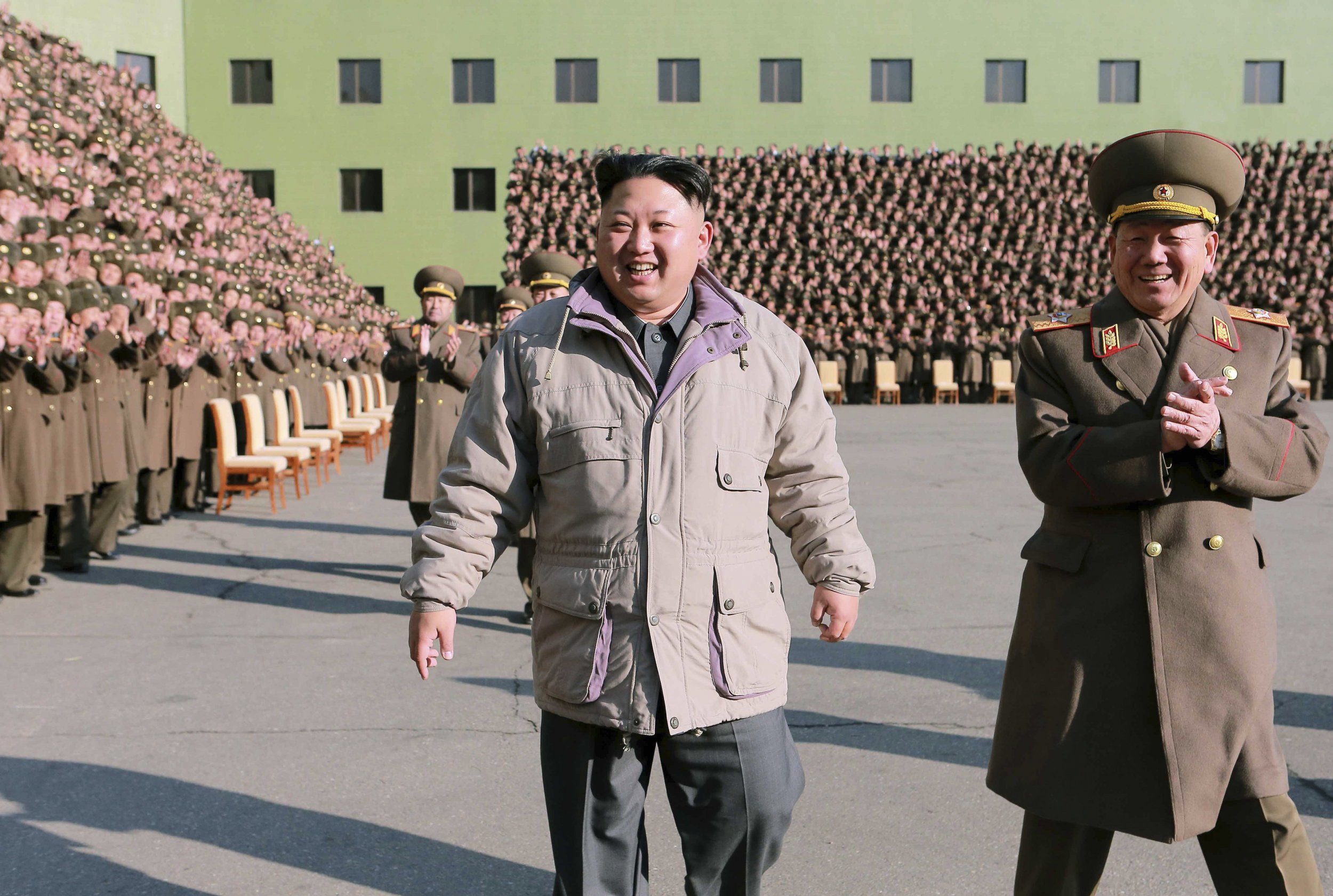
This article first appeared on the Council on Foreign Relations site.
As the United States has normalized relations with Cuba and signed the Iran nuclear deal and as Myanmar successfully held elections leading to a peaceful transfer of power, only North Korea remains a pariah state isolated from the outside world.
Yet, the current U.S. policy of insisting on North Korea taking concrete steps toward denuclearization as a precondition for talks has been a failure. While talks with Pyongyang have been frozen, the Kim Jong Un regime has made significant progress in its nuclear and missile programs.
It is high time for U.S. President Barack Obama, now in his last year in office, to try a new approach and reach out to Pyongyang, which, likewise, needs to adopt a new approach.
Some may claim the futility of negotiating with North Korea, arguing that the Obama administration already reached out to Pyongyang more than once, including with the 2012 "leap day" agreement, only to be "burned" by the Kim regime's failure to honor its part of the bargain.
However, giving up on diplomacy after a few failures may be giving up too easily. If the United States had taken the same approach toward Iran and Cuba, the recent breakthroughs may never have happened. Success requires persistence and learning from repeated "failures" before factors align in the right configuration.
Given its opacity, the North Korean regime might or might not be undergoing political or economic changes from within—factors that were absent during the previous rounds of negotiations. The United States will never find out unless it reaches out to North Korea, and Washington has nothing to lose from doing so. Moreover, improved relations with Pyongyang might even lead to reforms and openings in North Korea.
North Korea, for its part, must realize that its nuclear and missile build-up accompanied by threats to strike the United States is dangerous. Given the current trajectory of North Korea's nuclear weapons development, Washington might one day come under pressure to pursue a radical approach—even military action—toward Pyongyang.
For the United States, a saber-rattling North Korea getting closer to obtaining a nuclear second-strike capability against the U.S. homeland could potentially be an inflection point: Washington could let this happen or take action to prevent Pyongyang from achieving such a capability.
Hence, if North Korea seeks to ensure regime survival, it must show a willingness to curb its nuclear and missile ambitions. Pyongyang should realize that denuclearization is necessary for improved relations with the United States, without which North Korea cannot hope to attract Western investment, reduce its dependence on China and achieve satisfactory economic progress.
Pyongyang needs to learn from Cuba, Iran and Myanmar that doing business with the United States works and that greater opening to the outside world is in its own self-interest.
At the practical level, a way out of the current impasse may be for both Pyongyang and Washington to return to the Six Party Talks, moribund since 2009, with more flexibility in negotiating stances. While Pyongyang's denuclearization rightly should remain Washington's top priority, the United States should consider restarting the talks without strict preconditions if North Korea signals more interest in denuclearization, even if Pyongyang does not explicitly commit to denuclearization. North Korea and the United States can signal their intentions to each other, either through official and direct or unofficial and indirect channels, in a mutually face-saving manner. In the recent example with Cuba, the pope apparently played a behind-the-scenes role as the mediator. With the U.S.-China rapprochement in the early 1970s, the ping-pong diplomacy and the secret behind-the-scenes work by Henry Kissinger and others played a role.
Another reason for restarting talks with North Korea is that establishment of dialogue and channels of communication are critical in preventing and managing a crisis, if for no other reason than to avert miscalculation and unintended escalation. One reason the Cold War did not end with a nuclear calamity was because the United States and the Soviet Union, despite all their differences, kept channels of dialogue—including a hotline—open between each other. With U.S.-North Korea relations as well, channels of communication are necessary to prevent the two sides' "mini-Cold War" from turning into a "hot" war.
Time is rapidly running out for both the United States and North Korea to prevent the current situation from turning into a more severe crisis. Resolving the current standoff will probably become more difficult after Obama leaves office, as the next administration, no matter who wins the 2016 presidential election, is likely to be more hardline in its foreign and defense policy. North Korea should take advantage of the current window of opportunity by coming back to the negotiating table. At the same time, for pragmatic voices to eclipse the hardliners in Pyongyang, Washington needs to do more to assure the North Koreans of its peaceful intentions and its willingness to become a trusted partner in Pyongyang's economic development so as to end this perilous confrontation.
This piece was originally published by the Council on Foreign Relations.
Jongsoo Lee is Senior Managing Director at Brock Securities LLC and Center Associate at Harvard University's Davis Center for Russian and Eurasian Studies. The opinions expressed in this piece are his own. @jameslee004.
Uncommon Knowledge
Newsweek is committed to challenging conventional wisdom and finding connections in the search for common ground.
Newsweek is committed to challenging conventional wisdom and finding connections in the search for common ground.
About the writer
To read how Newsweek uses AI as a newsroom tool, Click here.








